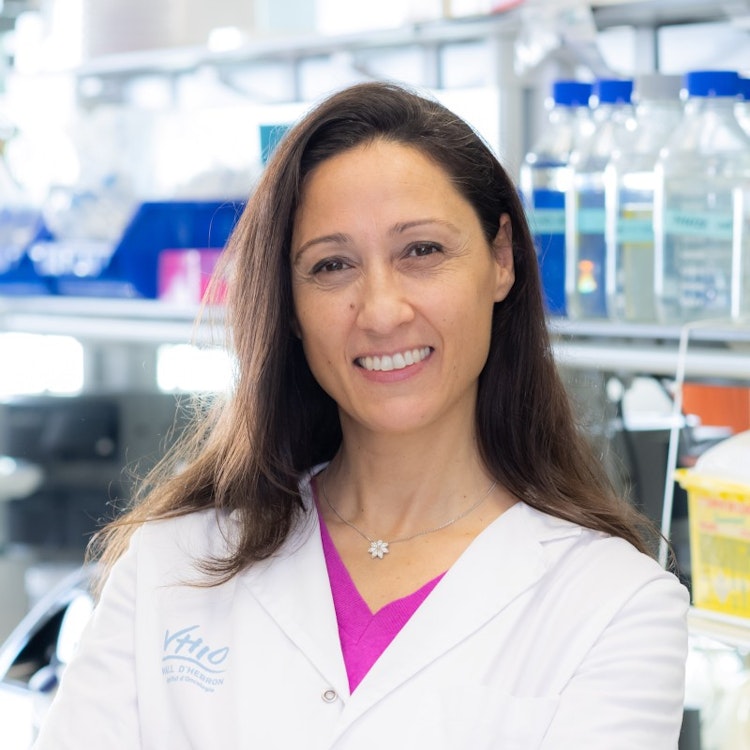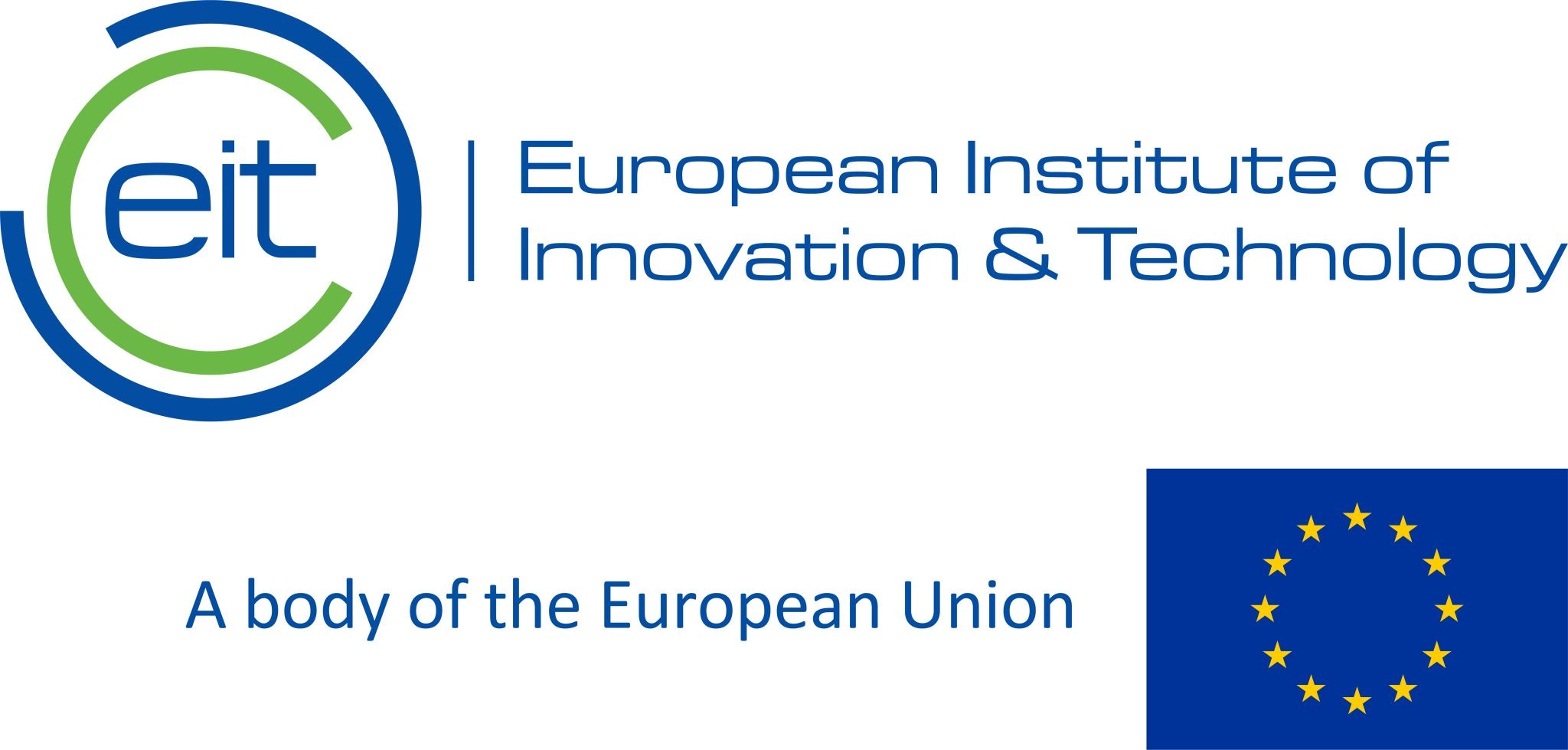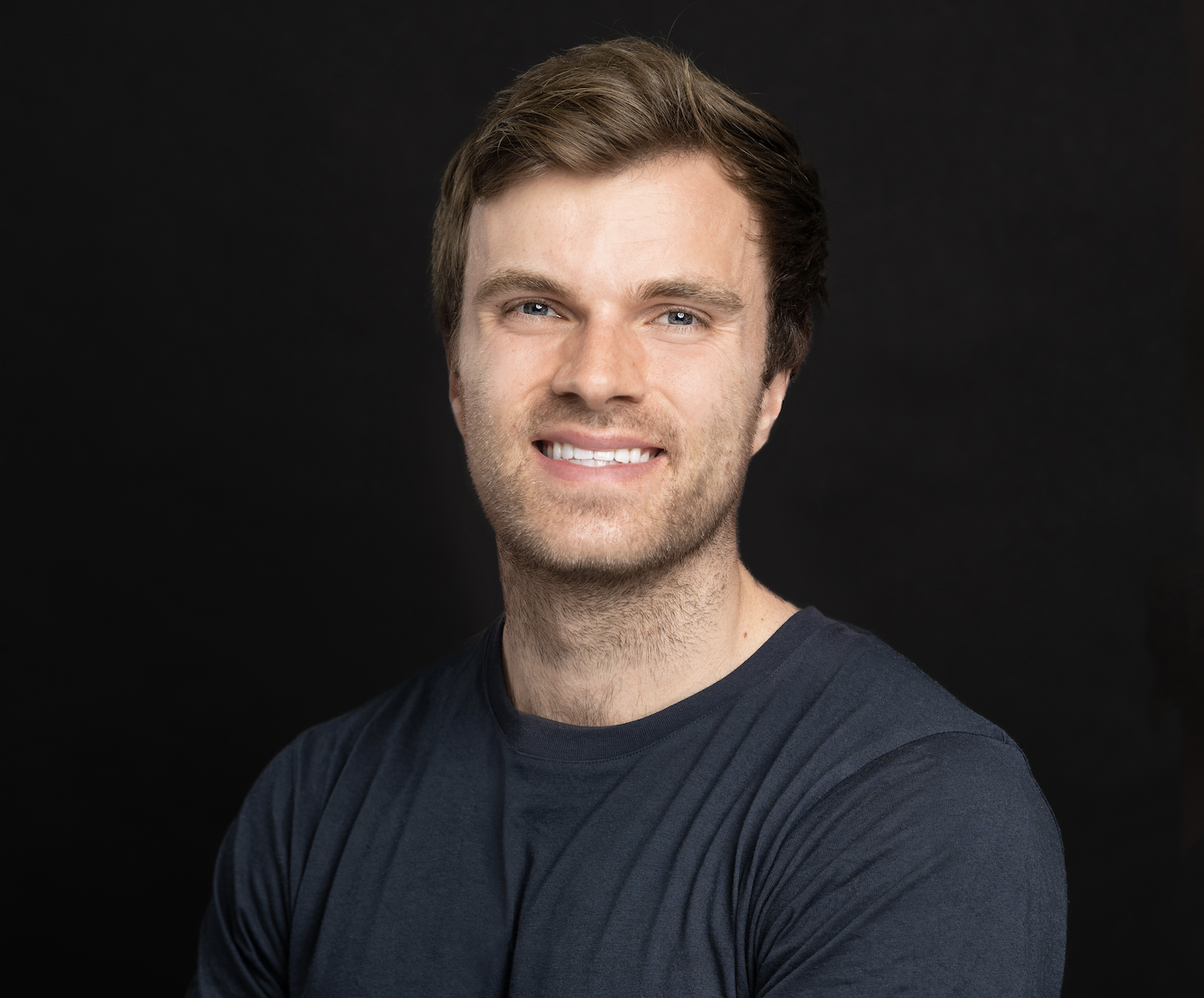It took almost two decades, but when molecular biologist Dr Laura Soucek had a breakthrough in the lab, she saw an opportunity to revolutionise cancer treatment around the world.
Her research had focused on developing an inhibitor that would target Myc, which cells express when they need to divide, and is a “huge culprit in cancer”. Myc allows cancer cells to proliferate, thrive and even resist treatment.
“We saw an opportunity to found a company and get this to patients as soon as possible,” she says. So in 2014, she cofounded Peptomyc with another scientist from her lab, Dr Marie-Eve Beaulieu. But the pair initially struggled to secure funding.
“Myc has been considered an undruggable target for a long time, so no one really believed we could do it. Plus the two of us have very strong scientific backgrounds, but no experience in business,” Soucek says.
She stepped up to become CEO, taking part in three accelerators run by the European Institute of Innovation and Technology (EIT). It was game changing.
“I had to learn very quickly about business,” Soucek says. “I had to learn about the terminology, how to draft a business plan and how to write a pitch. As well as EIT Health’s grants, I was really interested in their mentoring and coaching programmes. That support was essential for our first steps.”
The company's headcount is now 15, it has published its first in-human clinical trial results and has raised €42m in private and public investment.
Bridging the gap
It’s estimated that 90% of new startups will fail — and 50% will do so in their first five years. According to analysis by CB Insights, 47% of those startups that failed in 2022 did so because of a lack of financing or investors, and 44% simply ran out of cash.
We tried to apply for public grants to get the money to hire a CEO but were unsuccessful. They said they wouldn’t fund us without a CEO in place.
Those first investors can be like gold dust, particularly for entrepreneurs like Soucek who are working on tackling big challenges. Investors need to be willing to take a risk on an unproven team, and give them the runway they need to succeed.
The EIT aims to bridge that gap by supporting startups with the most potential at the earliest stage. It focuses on solutions to global challenges across nine Knowledge and Innovation Communities (KIC), covering urban mobility, climate change, cultural and creative sectors and industries, digitisation, the future of food, health innovation, sustainable energy, added value manufacturing and raw materials. It was created in 2010 to strengthen Europe’s ability to innovate and has since raised €9.5bn in investment, worked with more than 9,900 ventures and been involved in the launch of more than 2,400 new products and services.
The EIT is also able to introduce and support startups with applications to other public funds including the European Investment Fund (EIF), European Innovation Council (EIC) and European Investment Bank (EIB).
That early assistance can be pivotal. Skeleton Technologies, for example, was part of EIT InnoEnergy in 2013, benefitting from significant equity support as well as the connection with its network of experts and business contacts. Coupled with further funding from national funding agencies in Estonia and Germany, as well as €50k from the EIC, the company is now one of the largest European manufacturers of next-gen energy storage.
In 2023, Skeleton Technologies raised €108m from investors including Siemens and Marubeni.
‘Public funding is crucial’
Another beneficiary focused on climate tech is the team behind the Swedish startup Lixea. It took part in EIT’s Climate-KIC Accelerator in 2016 after spinning out from research developed at Imperial College London. The startup’s patented biomass technology converts wood waste or agricultural residue into high-quality intermediates for sustainable chemicals, materials and duels, using environmentally friendly ionic liquids.
Public funding is crucial. Everyone wants to be second to invest.
The EIT accelerator gave the startup’s founding team the opportunity to raise €50k through EIT-sponsored grants, competitions and pitching events, Lixea’s CEO Krisztina Kovacs-Schreiner, says. She joined the startup as commercial director in 2020 after the company received a €2.3m grant from the EIC Fund. A year later, it was also granted a further €2m in investment from the EIC as a convertible loan.
That money can be leveraged to de-risk the opportunity for venture capitalists, Kovacs-Schreiner says: “Public funding is crucial. Everyone wants to be second to invest.”
Investing where other funds won’t
In Barcelona, Simone Accornero is the CEO and cofounder of Flexidao, which focuses on renewable energy software solutions. In 2022, it closed a $6.5m Series A round with investment from Google and the Microsoft Climate Innovation Fund; it now has a team of 40 people operating across nine countries in Europe. But Accornero says none of it would have been possible without the early direction he and his cofounder received.
There wouldn’t be a Flexidao without EIT.
“There wouldn’t be a Flexidao without EIT,” he says. “It’s 100% responsible for the creation and for creating the environment to make it possible.”
Back in 2015, Accornero applied to study for an ‘EIT Label’ double Master’s of science, energy for smart cities, sponsored by EIT InnoEnergy. It was there that he met his cofounder and CTO, Grzegorz Bytniewski. The early idea for Flexidao began as a university project about blockchain in the energy sector.
They gave us an office, they gave us mentors, paid us an initial salary and created the conditions for us to try.
“We were two engineers that had no idea how to create a business,” he says. “They gave us an office, they gave us mentors, paid us an initial salary and created the conditions for us to try. We were getting free interns for the company that were being paid by EIT. More than 50% of our engineering team, including our head of product, came from InnoEnergy.”
As the business began to grow, InnoEnergy invested more money. “For startups with low traction and high risk, they invest where other funds wouldn't,” he adds. In 2019, the company received equity investment by SET Ventures, a venture firm backed by the EIF, which helped the company hire more software engineers and boost its growth internationally.
It’s the ability to tap into that European-wide network that makes working with the EIT so beneficial for entrepreneurs, Soucek says. When she won the first EIT Public Award in 2018, she was heartened by the enthusiasm for her project.
“All of a sudden I had a voice all over Europe,” she says. “EIT gave me a springboard that I would never have dreamed of before.”





